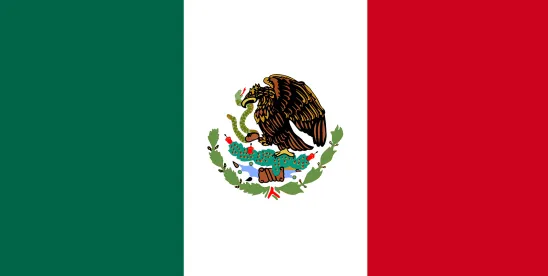On April 24, 2025, Mexico’s Federal Executive sent the Senate a draft decree that aims to reform, add, and repeal several provisions of the Federal Competition Law (the Initiative to reform) to initiate the legislative process.
The Initiative to reform proposes amendments that are divided into four main areas: (i) organic configuration and adjustment of the National Antimonopoly Commission’s powers; (ii) strengthening the Commissions’ powers and improving antitrust procedures; (iii) regulatory adjustments; and (iv) adjustments in telecommunications and broadcasting matters.
(i) Changing the National Antitrust Commission’s Organizational Configuration and Attributions
The initiative proposes eliminating the Federal Economic Competition Commission (COFECE) and creating the National Antimonopoly Commission as a decentralized public agency attached to the Ministry of Economy. The new Commission would have legal personhood, management autonomy, and technical and operational independence.
The Commission’s structure would include a plenary composed of five commissioners the Federal Executive appoints in a staggered manner and that the Senate of the Republic ratifies. The Commission would maintain separation between the investigation and sanction functions.
(ii) Strengthening Powers and Improving Procedures to Combat Monopolies
The Initiative to reform would strengthen the Commissions’ investigative and sanction tools to combat monopolistic practices, as well as illicit concentrations. The main measures include:
- Absolute Monopolistic Practices: Article 53 would be amended to sanction anticompetitive information exchanges without the need for a prior agreement.
- Concentrations: The timeframe for investigating unlawful concentrations would increase from one to three years, and monetary thresholds would decrease to make more transactions reportable.
- Collective Actions: The Initiative to reform specifies that these would be exercised once the administrative resolution is final.
- Immunity and Fine Reduction Programs: The terms and benefits would change to encourage early cooperation by the entities under investigation.
- Penalties and Enforcement Measures
In addition, the reform would strengthen enforcement measures and sanctions. For example, fines would increase for impeding verification visits ($22,628,000 MXN) and for failure to cooperate in appearances ($3,394,200.00 MXN).
Economic sanctions would become proportional to the damage caused. Examples of penalty increases include penalties of up to 20% of a company’s income for absolute monopolistic practices, 15% for committing relative monopolistic practices or illicit concentrations, and up to 10% for closing a transaction without obtaining an authorization from the authority when this was required.
(iii) Regulatory Adjustments
The Initiative to reform proposes adjustments to update legal references and elevate various regulatory provisions and the organic statute of the former COFECE to the status of law. Among the main adjustments are the following:
Verification and Qualification Procedures
The Initiative to reform proposes to make law the Procedure for Verification of Compliance with Obligations, which seeks to dissuade companies from neglecting to report transactions that may affect competition. This procedure would allow the National Antimonopoly Commission to verify that companies comply with their legal obligations and prevent mergers from taking place without prior supervision, which may result in anticompetitive effects.
In addition, the Qualification Procedure, which establishes criteria to determine whether certain information should be excluded from a file due to protected communications between a company and its defense counsel, would be made law. This seeks to guarantee the protection of confidential information and strengthen companies’ legal security, while ensuring that investigations are conducted in a fair and transparent manner.
Strengthening of Investigative Powers
The Initiative to reform seeks to improve the procedures for investigating, notifying concentrations, and issuing opinions, with the objective of making them clearer, faster, and more efficient. Among the improvements are:
- More Robust Investigations: The Investigating Authority would receive additional tools, such as inspection procedures, surveys, and data collection, in order to obtain relevant information. This would allow for the timely identification of anticompetitive practices.
- Notification of Concentrations: Deadlines for investigating illicit concentrations would extend from one to three years, and monetary thresholds would decrease to make more transactions notifiable (the lowest threshold is $837,236,000 MXN in asset accumulation). This is especially relevant in digital markets, where acquisitions may be complex and difficult to track.
Definitions and Key Concepts
The Initiative to reform expands and specifies the elements that the National Antimonopoly Commission must consider when determining the existence of substantial power, and related markets. These include:
- Substantial Power: More detailed criteria would be established to identify whether a company has the ability to fix prices, restrict supply, or exclude competitors without other agents being able to counteract these actions.
- Related Markets: The Initiative to reform introduces a clearer definition of this concept that considers the interactions between markets that may influence competition. This is particularly relevant in sectors such as digital, where companies generally operate in multiple, interconnected markets.
These clarifications seek to ensure that the Commission’s investigations and resolutions are technically sound and in line with international best practices.
Transparency
The Initiative to reform aims to reinforce the principle of transparency by ordering the stenographic versions of the Plenary of the National Antimonopoly Commission’s sessions be published.
In addition, the reform proposes that the Plenary’s resolutions be drafted in the citizens’ language, facilitating consumers and companies’ understanding.
(iv) Changes in Telecommunications and Broadcasting
The Initiative to reform includes provisions to regulate cross participation in telecommunications and broadcasting, in compliance with Article 28 of the Mexican Constitution. The National Antimonopoly Commission would impose limits on the concentration of frequencies and concessions and would order the divestiture of assets when necessary to guarantee competition. The procedures related to preponderance would coordinate with the agency in charge of telecommunications and broadcasting policies.
In addition, it states that the legal acts that the Federal Telecommunications Institute (IFT) has issued in matters of economic competition, preponderance, and asymmetric regulation would continue to be effective.
General Impact
The Initiative to reform seeks to consolidate a more robust legal framework to combat anticompetitive practices, strengthen the state’s control over the economy, and promote fairer and more competitive markets.
The National Antimonopoly Commission may be operational by July 1.
Achieving this goal might depend on two key factors:
| 1. | Congress’ approval of the proposed amendments without significant debate; and |
| 2. | The president’s appointment of the five new commissioners, followed by Senate ratification. |
Considering the majority in Congress, these objectives are potentially achievable.




 />i
/>i
